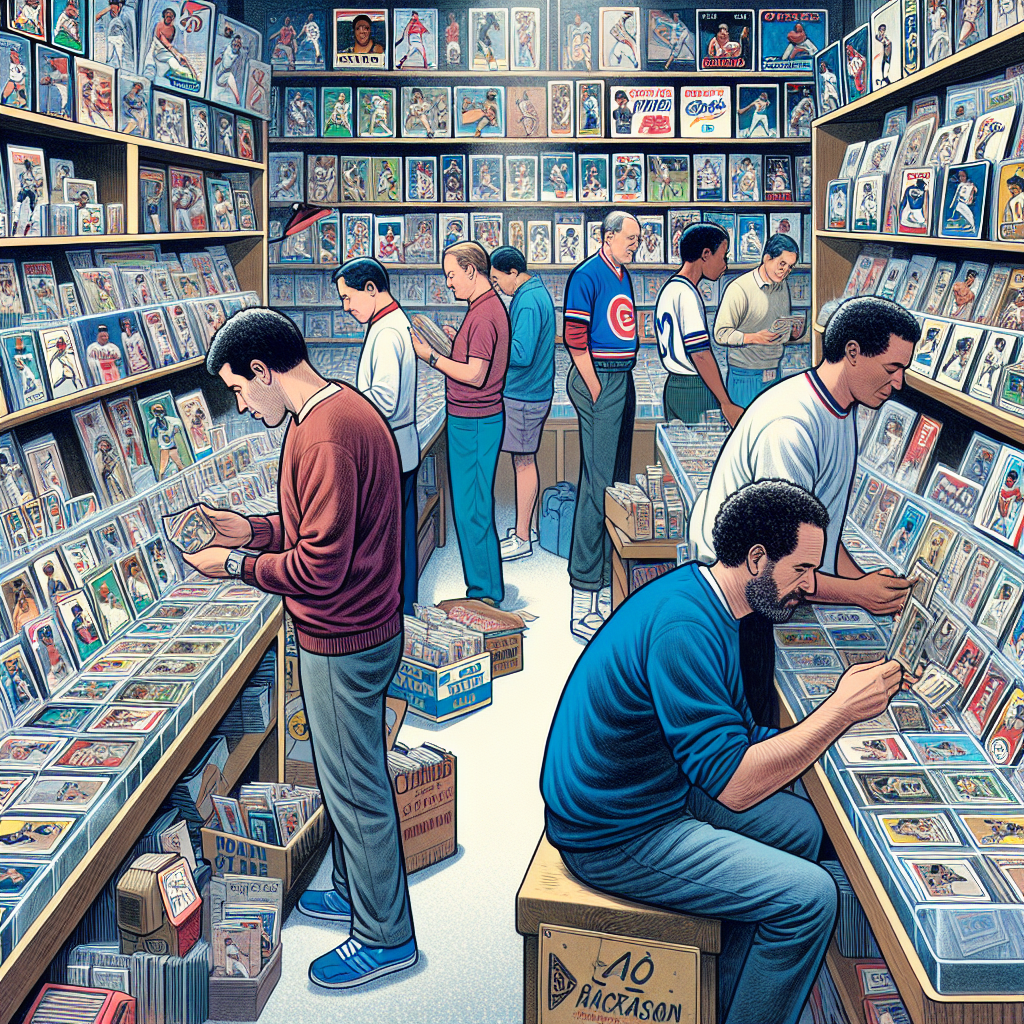Hey there! Have you ever found yourself intrigued by the world of card collecting, but unsure of where to start? Well, look no further! In this article, I’ll be addressing some of the most frequently asked questions about card collecting, offering you valuable insights and tips to help you embark on this exciting journey. From understanding the different types of cards to knowing how to properly store and value your collection, we’ll cover it all. So, whether you’re a seasoned collector or just starting out, let’s dive right in and explore the fascinating world of card collecting together!
General Information
What is card collecting?
Card collecting is the hobby of acquiring and collecting trading cards. These cards can range from sports cards featuring athletes, to trading cards based on popular TV shows, movies, or video games. Collectors often seek to obtain complete sets or specific rare cards to add to their collections.
Why do people collect cards?
People collect cards for a variety of reasons. For some, it is a way to connect with their favorite sports team or athlete. Others enjoy the nostalgia and sentimentality associated with collecting cards from their childhood. Some collectors appreciate the artwork and design of the cards themselves. Additionally, card collecting can be a lucrative investment, as valuable cards can appreciate in value over time.
What types of cards can be collected?
There is a wide variety of cards that can be collected. Sports cards are among the most popular, with baseball, basketball, football, and hockey cards being particularly sought after. Non-sports cards, such as those based on comic book characters, TV shows, movies, or video games, are also commonly collected. Other types of cards include trading cards featuring collectible card games like Pokémon or Magic: The Gathering.
What are some popular card collecting themes?
The popularity of card collecting themes can vary depending on personal interests and current trends. Some popular themes include:
- Sports: Collecting cards featuring professional athletes and teams from various sports.
- Pop culture: Collecting cards based on popular movies, TV shows, or video games.
- Comic books: Collecting cards featuring iconic comic book characters or storylines.
- Historical events: Collecting cards related to significant historical events or figures.
- Collectible card games: Collecting cards used in popular card games like Pokémon, Magic: The Gathering, or Yu-Gi-Oh!
How can I start a card collection?
Starting a card collection is easy and can be tailored to your interests and budget. Here are some steps to get started:
- Determine your preferred theme: Decide what type of cards you want to collect, whether it’s sports, pop culture, or something else.
- Set a budget: Determine how much you are willing to spend on acquiring cards.
- Research and educate yourself: Familiarize yourself with the different types of cards in your chosen theme. Learn about rare and valuable cards.
- Purchase cards: Start acquiring cards either through online marketplaces, specialty card shops, or hobby conventions.
- Organize and display your collection: Store your cards in a safe and organized manner, utilizing card storage options, and consider creating a display to showcase your favorite cards.
Card Authentication
What is card authentication?
Card authentication is the process of verifying the authenticity and legitimacy of trading cards. With the rise of counterfeit cards in the market, it has become crucial to ensure that the cards collectors purchase are genuine and not fake reproductions.
Why is card authentication important?
Card authentication is important because it guarantees the integrity and value of a card. Authenticating a card provides peace of mind to collectors, knowing that they are investing in a genuine item. It also protects collectors from purchasing counterfeit cards, which can be a waste of money.
How can I authenticate a card?
To authenticate a card, collectors can rely on professional card authentication services. These services employ experts who thoroughly inspect the cards, checking for signs of counterfeiting or alteration. They compare the card’s characteristics against an extensive database of known authentic cards.
Are all cards worth authenticating?
Not all cards are worth authenticating, especially if they are low-value or readily available cards. It is generally more cost-effective to authenticate high-value or rare cards, as the authentication process can incur fees.
What are some reputable card authentication services?
Some reputable card authentication services include:
- Professional Sports Authenticator (PSA)
- Beckett Authentication Services (BAS)
- Certified Guaranty Company (CGC)
- Sportscard Guaranty (SGC)
These services have established themselves as industry leaders and provide reliable results when it comes to authenticating trading cards.
Card Grading
What is card grading?
Card grading is the process of evaluating the condition and quality of a trading card. Grading provides a standardized assessment, assigning a numeric grade to the card based on its physical attributes such as centering, corners, edges, and surface.
Why is card grading important?
Card grading is important because it helps determine the overall quality and value of a card. Grading provides a universally recognized standard for assessing condition, allowing collectors to accurately compare and value their cards. Graded cards often command a higher price in the market due to their verified condition.
Who grades cards?
Cards are typically graded by professional grading companies that specialize in this field. These companies employ experienced and knowledgeable graders who have expertise in evaluating cards based on set criteria and industry standards.
How are cards graded?
When a card is submitted for grading, it undergoes a thorough evaluation process. The grader examines the card for any imperfections, such as wear, creases, or printing defects, and assigns a grade based on its condition. The grading scale usually ranges from 1 to 10, with 10 being the highest grade indicating a card in pristine condition.
What are some popular card grading companies?
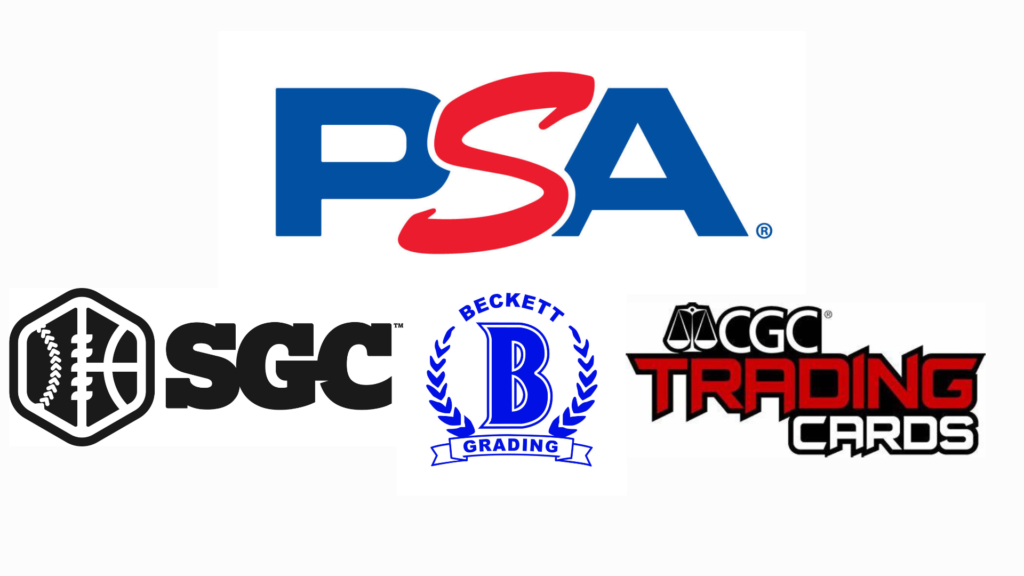
Some popular card grading companies include:
- Professional Sports Authenticator (PSA)
- Beckett Grading Services (BGS)
- Sportscard Guaranty (SGC)
- CGC Trading Cards (CGC)
These companies have established themselves as reputable and trusted grading authorities within the card collecting community.
Card Storage and Preservation
How should I store my card collection?
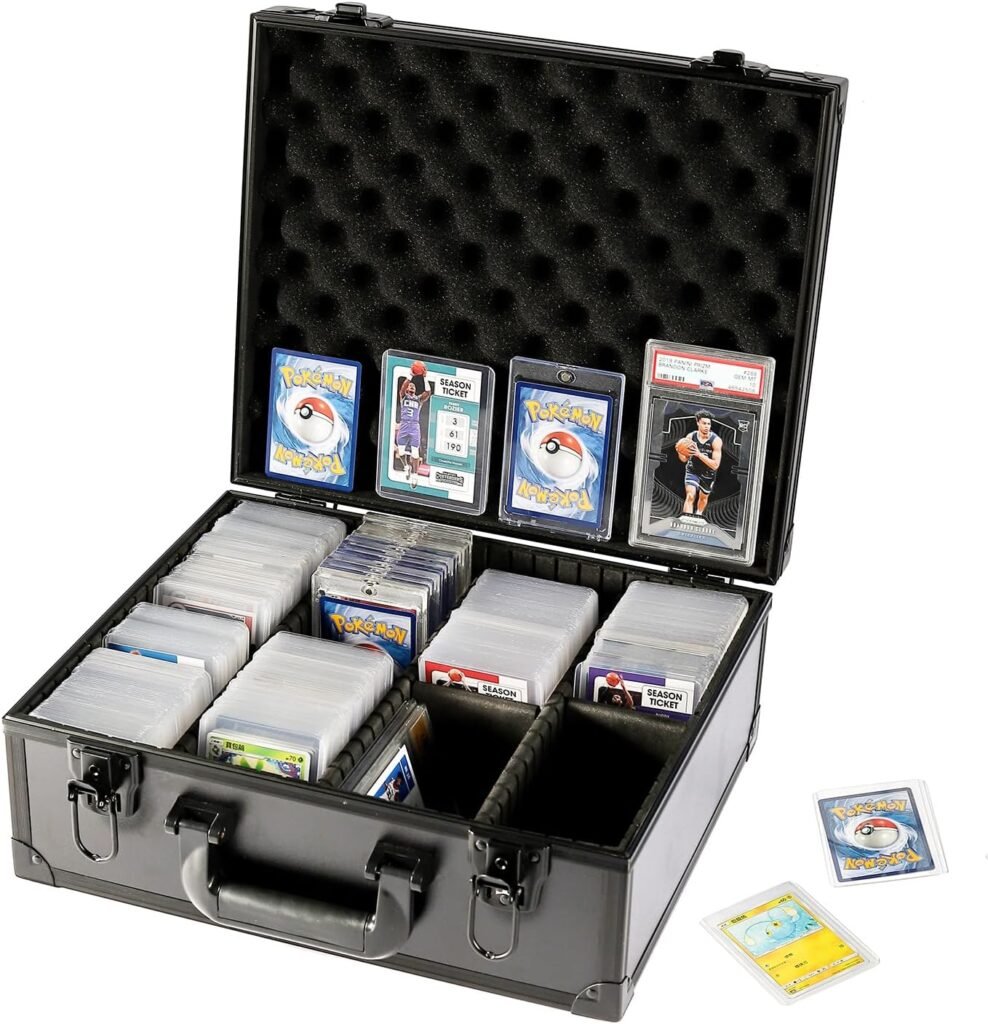
Storing your card collection properly is essential to maintain its condition and value. Here are some guidelines:
- Use protective sleeves: Store individual cards in acid-free, archival-quality plastic sleeves to prevent damage.
- Utilize storage boxes: Place sleeved cards in storage boxes designed specifically for card collection, ensuring they fit snugly without excessive movement.
- Consider album pages: If you want to display your cards, use album pages with pockets to keep them secure and easily viewable.
What are some common card storage options?
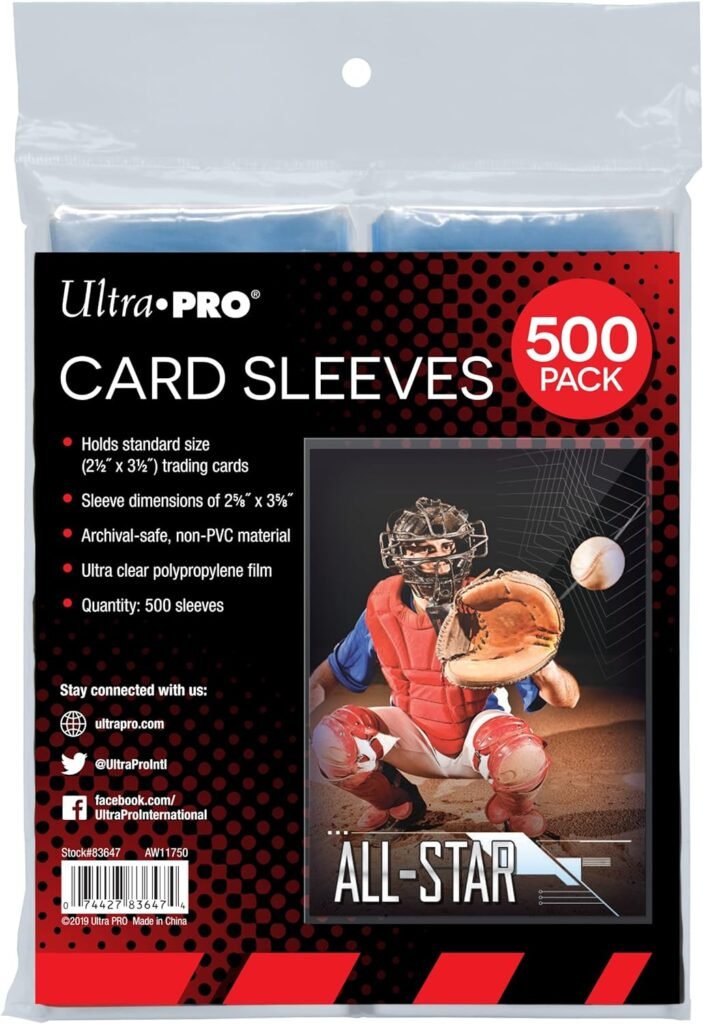
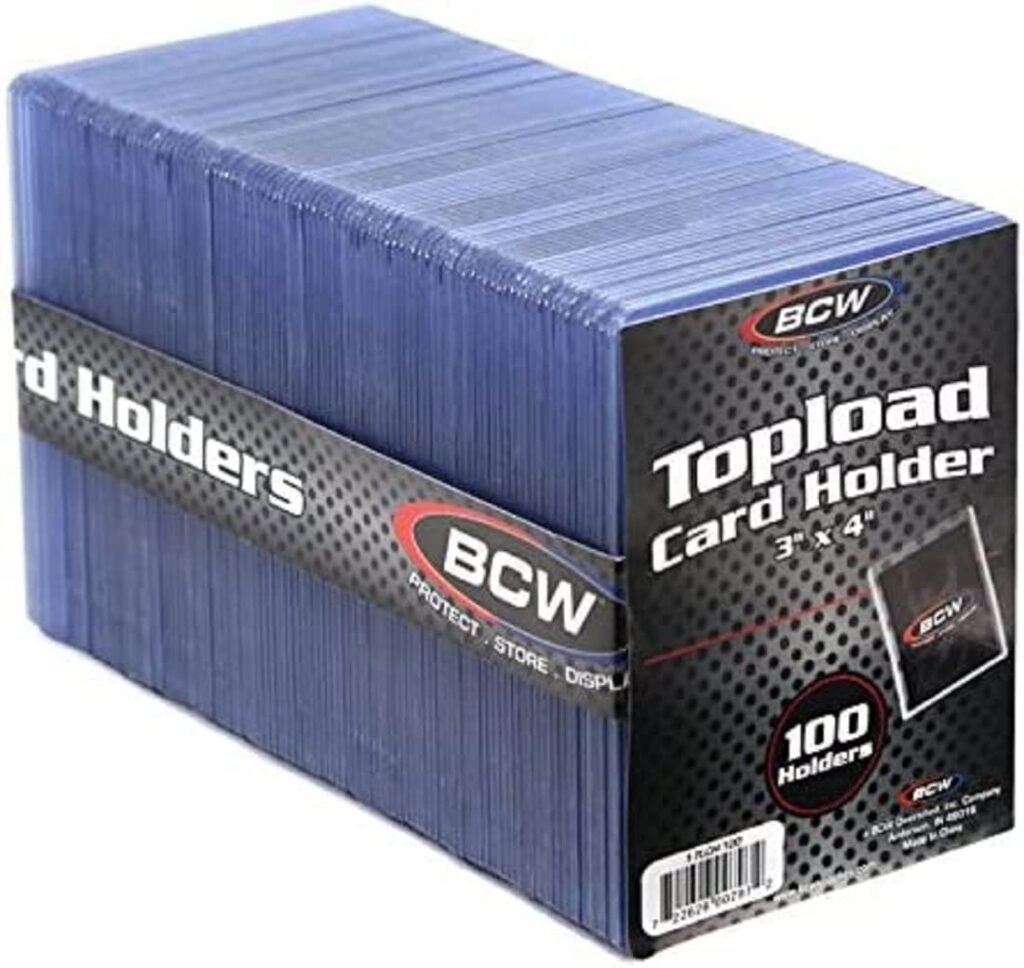
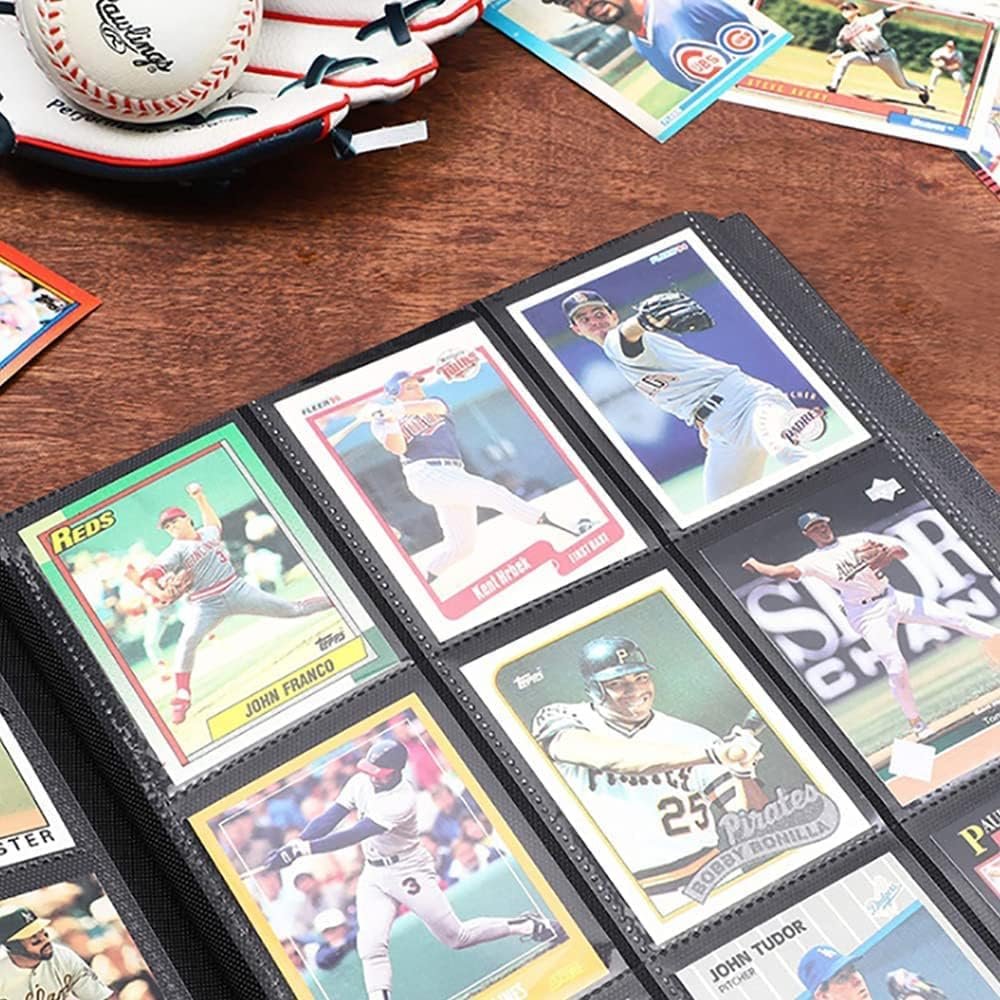
Common card storage options include:
- Card storage boxes: These durable boxes come in various sizes and can hold hundreds or even thousands of cards.
- Card binders or albums: These provide a convenient way to flip through and display your cards, with album pages featuring pockets to hold them securely.
- Card sleeves: Clear plastic sleeves that protect individual cards from wear, fingerprints, and other potential damage.
- Card toploaders: Thick, rigid plastic cases designed for storing and protecting valuable cards.
How can I protect cards from damage?
To protect your cards from damage, consider the following:
- Handle cards with care: Avoid touching the surface of the card, as oils from your fingers can damage the card or leave marks.
- Protect cards from direct sunlight: Prolonged exposure to sunlight can cause fading and discoloration of cards.
- Control humidity: Avoid areas with excessive humidity, as this can lead to moisture damage and warping of cards.
- Store cards in a cool, dry place: Keep your collection in a controlled environment with stable temperature and humidity levels.
What are the do’s and don’ts of card preservation?
- Do use acid-free, archival-quality storage materials.
- Do handle cards with clean hands or wear gloves when necessary.
- Do store cards in a way that minimizes movement and friction.
- Don’t store cards in basements, attics, or other areas prone to extreme temperature fluctuations or high humidity.
- Don’t place heavy objects on top of stored cards.
- Don’t use adhesive or tape on cards, as they can cause irreversible damage.
How should I handle and display my cards?

When handling and displaying your cards, follow these guidelines:
- Wash and dry your hands before handling cards.
- Hold cards by their edges, avoiding touching the surface.
- Use clean, soft surfaces when working with cards.
- Avoid placing cards in direct sunlight or high-temperature areas.
- When displaying cards, use acid-free display cases or frames to protect them from dust and damage.
Card Valuation and Pricing
How can I determine the value of a card?
To determine the value of a card, you can consider several factors:
- Rarity: The scarcity of a card can significantly impact its value.
- Condition: Cards in better condition generally command higher prices.
- Popularity and demand: Cards featuring popular players or characters may have higher value due to increased demand.
- Historical significance: Cards associated with milestone events or significant moments in sports or pop culture history may be more valuable.
What factors affect the price of a card?
Several factors can influence the price of a card:
- Player/character performance: On-field success, celebrity status, or critical acclaim can drive up the value of a card.
- Supply and demand: Limited availability and high demand can raise prices.
- Condition: Well-preserved, graded cards in mint condition generally fetch higher prices.
- Age and rarity: Older cards, especially those from the early days of a franchise or card set, may have higher value due to their scarcity.
Where can I find card price guides?
Card price guides can be found in various formats, including:
- Printed books: Many publishers release annual price guides that collectors can purchase.
- Online resources: Numerous websites provide up-to-date pricing information for various card types.
- Mobile apps: There are apps available that offer real-time card pricing and collection management tools.
Are there any online resources for card valuation?
Yes, several online resources can assist with card valuation. Some popular websites include:
- Beckett.com: Beckett provides a comprehensive online price guide for various sports card categories.
- eBay: The online marketplace eBay allows users to search for sold listings to see the recent prices that cards have sold for.
- PSA Price Guide: This website provides a vast catalog of cards and allows users to track card values over time.
- Sportscardspro.com: The site provides a free price guide for PSA, BGS, and ungraded sports cards, allowing users to search for card prices by sport, brand, and set.
How can I sell or trade cards?
To sell or trade cards, you have several options:
- Online marketplaces: Platforms like eBay, COMC (Check Out My Cards), and hobby forums allow you to sell cards directly to other collectors.
- Local card shops: Visit a nearby card shop to inquire about their buyback or trade-in policies.
- Card shows and conventions: Attend these events to connect with other collectors and potentially sell or trade cards in person.
Card Collecting Community
Are there any online communities for card collectors?
Yes, there are numerous online communities where card collectors can connect, share their collections, discuss trading strategies, and engage in buying, selling, and trading cards.
What are some popular card-collecting forums?
Some popular card-collecting forums include:
- Blowout Cards Forums: A large and active online community with sections dedicated to various sports and non-sports card collecting.
- Sports Card Forum: A forum known for its extensive marketplace and trading sections, where collectors can connect and negotiate with others.
- Reddit: Several subreddits, such as r/sportscards and r/baseballcards, provide platforms for collectors to interact and share their collections.
How can I connect with other card collectors?
There are several ways to connect with other card collectors:
- Join online communities and forums dedicated to card collecting.
- Attend local card shows and conventions, where you can meet collectors in person.
- Participate in card trading events and group breaks, either in person or online.
- Engage in social media groups and hashtags related to card collecting to connect with like-minded collectors.
Are there any card-collecting events or conventions?
Yes, there are card-collecting events and conventions held throughout the year, offering opportunities to connect with fellow collectors and explore a wide range of cards. Some of the most notable events include:
- National Sports Collectors Convention: The largest annual gathering of sports card collectors in the United States.
- The Industry Summit: A trade-focused event where industry leaders, shop owners, and collectors come together to discuss trends and developments in the card collecting market.
- Comic-Con International: While primarily focused on comic books and pop culture, Comic-Con includes vendors and activities related to card collecting.
What are some benefits of joining a card collecting community?
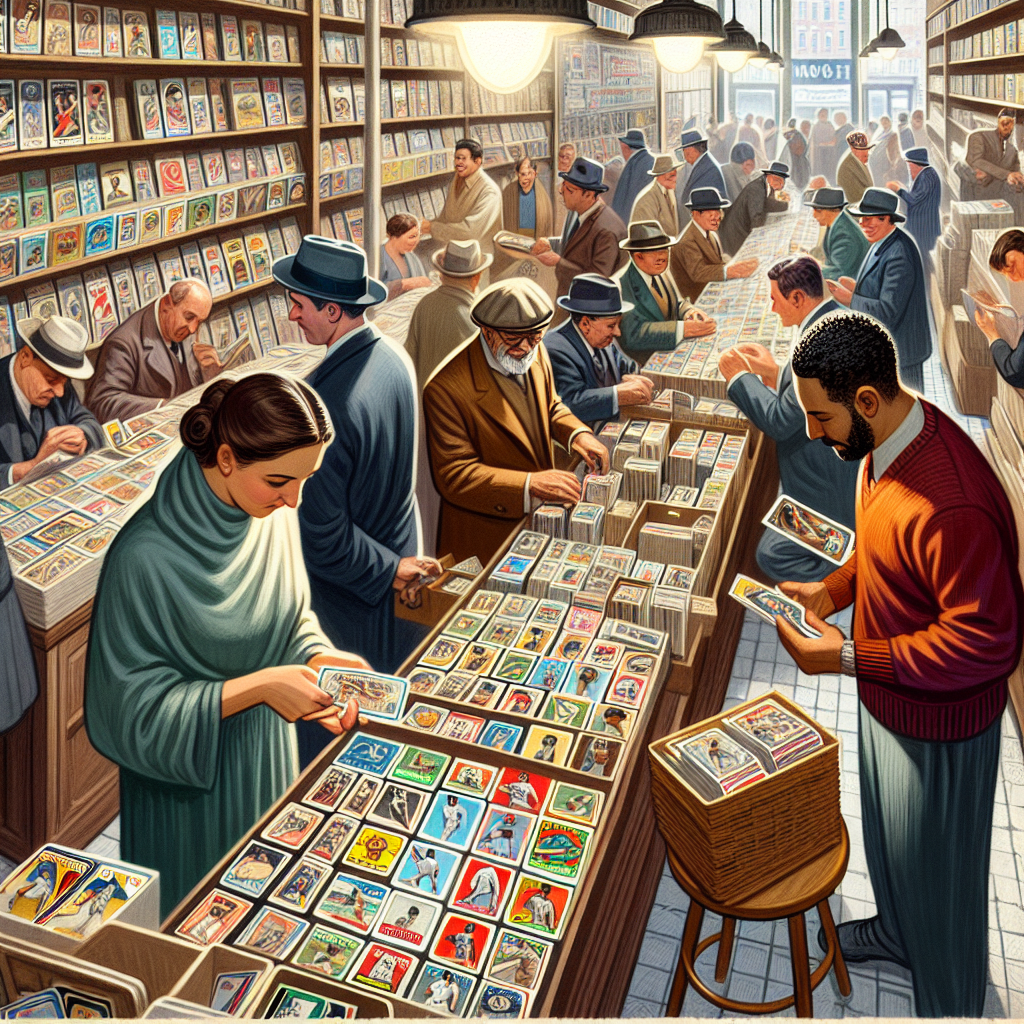
Joining a card collecting community offers several benefits, including:
- Knowledge sharing: Learn from experienced collectors, gain insights into collecting trends, and discover new information about cards and their values.
- Networking and connections: Connect with fellow collectors who may have cards you are interested in acquiring or knowledge about difficult-to-find cards.
- Trading opportunities: Engage in trades that allow you to expand your collection by exchanging duplicate cards or cards you no longer desire.
- Access to resources and advice: Seek recommendations on card storage, grading, authentication services, and other aspects of collecting from an experienced and supportive community.
Common Card Collecting Terminology
What are some common terms used in card collecting?
Here are some common terms used in card collecting:
- Base card: The standard card in a set that does not have any special design or features.
- Parallel card: A variation of a base card, usually featuring a different design, color, or finish.
- Insert card: A card inserted into packs at a lower ratio than base cards, often featuring special themes, autographs, relics, or limited editions.
- Rookie card: The first card produced of a player or character during their rookie season or debut.
- Autograph card: A card that features the authentic signature of a player, celebrity, or artist.
- Relic card: A card that includes a piece of game-worn memorabilia, such as a jersey swatch or bat fragment.
- Serial numbered card: A card with a unique number printed directly on the card, indicating its position within a specific print run.
What is a rookie card?
A rookie card refers to the first officially licensed card of a player or character during their rookie season or debut. Rookie cards are often considered more valuable due to their significance in a player’s career or the collectible market.
What does ‘mint condition’ mean?
Mint condition refers to a card that is in pristine and flawless condition. Mint cards typically have sharp corners, clean edges, no creases or surface damage, and perfect centering. Cards in mint condition are highly coveted by collectors and often command a premium price.
What is a parallel card?
A parallel card is a variation of a base card that features a different design, color, or finish. Parallel cards are often produced in limited quantities and can be highly sought after by collectors due to their rarity.
What is the significance of limited edition cards?
Limited edition cards are produced in smaller quantities compared to regular base cards. They often feature unique designs, special finishes, or additional attributes such as autographs or game-worn relics. The limited supply of these cards increases their desirability among collectors and can drive up their value.
Trends and Market Insights
What are some current trends in card collecting?
Some current trends in card collecting include:
- Emerging sports and athletes: Increasing interest in non-traditional sports such as soccer, UFC, and eSports has led to a surge in demand for cards featuring athletes from these fields.
- Nostalgia-driven collecting: Collecting cards from one’s childhood or specific eras has become popular as collectors seek to recapture moments of nostalgia.
- Alternative card formats: Collectors are exploring alternative card formats such as digital collectibles and blockchain-based cards.
Which cards are currently in high demand?
Cards that are currently in high demand include:
- Rookie cards of rising stars in various sports.
- Cards featuring popular athletes, such as LeBron James, Tom Brady, or Mike Trout.
- Limited edition or autographed cards of highly sought-after players or celebrities.
What are some future predictions for the card-collecting market?
While market predictions can be challenging, some potential future developments in the card-collecting market include:
- Continued growth of niche markets: Collectors may increasingly focus on specific niches, such as cards featuring female athletes or cards related to emerging sports or genres.
- Integration of technology: The use of technology, such as augmented reality and digital collectibles, may become more prevalent within the card-collecting market.
- Expansion of international markets: As card collecting gains popularity worldwide, there may be increased interest in cards from international sports leagues and cultural icons.
Are there any investment opportunities in card collecting?
Card collecting can offer investment opportunities, but it is important to approach it with caution and do thorough research. While valuable cards can appreciate in value over time, the market can also fluctuate. Factors such as player performance, market trends, and the overall demand for specific cards can impact their investment potential.
How does card collecting compare to other collectibles markets?
Card collecting has its unique advantages and considerations compared to other collectibles markets. Some key differences include:
- Market volatility: The card collecting market can experience rapid fluctuations in value compared to more stable markets like coins or stamps.
- Accessibility: Card collecting is often more accessible to a broader range of collectors due to the vast array of themes, price ranges, and availability of cards.
- Popularity and cross-market appeal: The intersection of sports, pop culture, and art in card collecting can attract enthusiasts from various backgrounds, potentially driving greater demand and interest.
Card Collecting Etiquette
What are some etiquette guidelines for trading cards?
When engaging in card trading, it’s important to adhere to proper etiquette:
- Be respectful and honest: Represent your cards accurately, communicate openly, and honor agreements.
- Respond promptly: Communicate in a timely manner and provide updates to trading partners.
- Package cards securely: Use appropriate packaging materials to protect cards during shipping.
- Follow established guidelines: If participating in online communities or platforms, familiarize yourself with any rules or guidelines for trading.
Is it considered acceptable to negotiate prices with sellers?
Negotiating prices with sellers is generally acceptable, especially in the case of non-fixed price listings or when dealing directly with individuals. However, it is essential to approach negotiations respectfully and be mindful of the seller’s perspective.
What should I do if I receive a damaged card from a trade?
If you receive a damaged card from a trade, contact the trading partner to discuss the issue. Be open and honest about the condition discrepancy and try to reach a resolution that is fair to both parties. It is important to maintain good communication and strive for a mutually satisfactory outcome.
How can I avoid scams and counterfeit cards?
To avoid scams and counterfeit cards, follow these tips:
- Purchase from reputable sources: Buy cards from established sellers, reputable online platforms, or trusted card shops.
- Authenticate high-value cards: Consider having high-value cards authenticated by a professional card authentication service.
- Educate yourself: Familiarize yourself with the characteristics of genuine cards and be aware of common signs of counterfeiting or alteration.
Are there any rules of conduct for card-collecting events?
While specific rules may vary depending on the event or convention, some general rules of conduct for card-collecting events include:
- Respect event organizers and their rules: Familiarize yourself with the event guidelines and follow them accordingly.
- Be considerate of others: Respect fellow collectors, vendors, and exhibitors, and be mindful of personal space and common courtesy.
- Practice good sportsmanship: Treat others with respect, even during trades or negotiations where disagreements may arise.
- Adhere to buying and selling guidelines: If there are specific rules for buying or selling at an event, ensure you follow them to maintain a fair and enjoyable experience for all attendees.
Card Collecting for Kids
Is card collecting suitable for kids?
Yes, card collecting can be an enjoyable and educational hobby for kids. It can help foster an appreciation for sports, pop culture, history, and the value of collecting and preserving items.
How can kids start their own card collections?
Kids can start their own card collections by following these steps:
- Choose a theme: Select a theme that interests them, such as their favorite sports team, TV show characters, or collectible card games.
- Set a budget: Determine a budget, ensuring it is appropriate for their age and circumstances.
- Research and learn: Teach them about the different types of cards, how to care for them, and the concept of rarity and value.
- Start acquiring cards: Help them acquire cards through local card shops, online marketplaces, or by trading with friends.
- Encourage organization and display: Teach them how to organize and store their cards properly, and help them create a display to showcase their favorite cards.
What types of cards are popular among children?
Some types of cards that are popular among children include:
- Sports cards featuring their favorite athletes or sports teams.
- Trading cards based on popular television shows, movies, or animated series.
- Collectible card games like Pokémon or Yu-Gi-Oh!, offer both gameplay and collecting elements.
Are there any specific resources or guides for young collectors?
Yes, there are resources and guides available specifically for young collectors, including:
- Kids-oriented magazines: Magazines like Beckett Kids provide content aimed at young collectors, including card reviews, collecting tips, and features on sports and pop culture.
- Online communities and forums: Some online communities have sections dedicated to young collectors, where they can interact with peers and find age-appropriate information.
- Parental guidance: Parents can provide support by researching and sharing appropriate resources, teaching card collecting basics, and engaging in the hobby alongside their children.
How can parents support their children’s card-collecting hobby?
Parents can support their children’s card collecting hobby by:
- Encouraging education: Help children learn about different types of cards, their history, and the skills associated with collecting.
- Setting limits and budgets: Teach children about responsible spending and help establish a budget for acquiring cards.
- Participating in their hobby: Spend time helping children organize their collections, trade cards, or attend card-collecting events together.
- Promoting good sportsmanship: Encourage fair and respectful interactions with other collectors, emphasizing the importance of honesty and integrity in trading and dealing with others.

Hi there! I’m Felix Gonzalez and I am the owner of Card Collecting Insider, and I’m thrilled to welcome you to my site! With our tagline “Uncover the Art of Collecting, One Card at a Time,” I’m here to provide you with expert insights, valuable resources, and the latest trends in the world of card collecting. Whether you’re a seasoned collector or just starting out, I’m dedicated to helping you discover hidden gems and sharing insider tips to elevate your collection. So join me on this exciting journey, as I dive deep into the captivating realm of card collecting. Let’s unlock the true beauty of these collectible treasures together!

